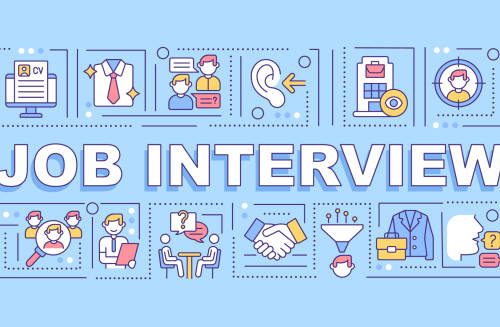Interview Ready!
My chosen job description for the simulated interviews was for a position as an audio engineer in a studio-based work environment, a career I am very passionate to pursue when I graduate from university and in the future, complete a master’s degree. When I previously thought of being Interviewed a few nerve-racking questions always come to mind. For example, thinking what’s going to happen? What do I say? What will they think? What if I fail? However, after learning about how to prepare for a job interview and what potential questions could be asked, I feel a lot more confident in completing the task. To describe my experience of the simulated interview, I will use Gibb’s reflective model to structure my writing. (Jasper, 2013, p. 80).

Description
Since I had the lecture on interview skills, I began planning how I was going to prepare for the simulated interview for the audio engineering position. First, I began to carefully go through the potential interview question examples on the canvas module. I began writing down the questions and finding the best way to answer them. For the competency-based questions, I practiced using the STAR technique which provided a solid structure for answering the questions. Once I had the answers to the interview questions correctly written down. I then practiced answering the questions as if I was in a real interview. I repeated the process each day for the week leading up to the interview day.

On the day of the simulated interview, I arrived at the university an hour earlier to practice the answers to the questions one more time before the interview. When the time finally arrived I was still feeling quite anxious but I started well with a firm handshake and felt that I generally answered most of the questions with confidence. There were a few times were I noticed myself waffling or stuttering when I got stuck on some questions I did not practice for. When I got my feedback sheet from our group they commented that I was friendly, constructed, and delivered my answers well at a good pace, showed dedication, and had good knowledge of the job requirements. They also commented on things I need to work on which were my confidence, eye contact, and body language.
Feelings
Initially, I felt quite anxious about interviews in general. I never thought about there being particular questions that are used for interviews. So, when I could go through the list of questions that were available on the canvas module and then use them to structure my answers with confidence, it definitely made the process a lot easier. Secondly, even though I was anxious during the simulated interview, I feel that I would be able to relax and the things like poor eye contact, body language, and confidence would not be a problem if I practice more simulated interviews with my friends and really focus on improving my weaknesses.
Evaluation and Analysis
Reflecting on my simulated interview I think that the most confident part of my interview was when I was asked questions where I had strong knowledge of certain aspects of the job description. It definitely seems true that knowledge provides strength. When you can bring relevant knowledge or experience to a job that can surprise the interviewee. Other things I took away from the simulated interview would say that are important are dressing smart for the job and being alert, friendly, and professional. To sit up straight and not slouch, waffle, and master the art of answering questions and try not to get stuck on questions or stammer.
Conclusion
Overall, I think the simulated interview experience went well and had a very positive outcome. I feel that I have learned how to prepare well for a job interview and know what potential questions I could be asked. Furthermore, I now know what my interview weaknesses are and can plan strategies to overcome them. Another analysis of the day is that having a strong CV where I have lived and worked abroad where I had my own small business
Action Plan
Now that I have had the experience of planning, executing, and reflecting on a simulated interview both as the interviewer and the interviewee, I have gained insightful structured knowledge of how to become a successful candidate for any job application that I have the skills for.

Bibliography
Doll, J L. (2018) Structured Interviews: Developing Interviewing Skills in Human Resource
Management Courses. Management Teaching Review, vol. 3, no. 1, pp. 46–61.
Jasper, M. (2013) Beginning reflective practice.Melbourne & London: Cengage Learning.
Evaluating Anxiety
You May Also Like

Job Interviews: Selling Yourself For A Pay Cheque
24 February 2023
Interview a New You! – Becoming an Interview Guru
24 February 2023
